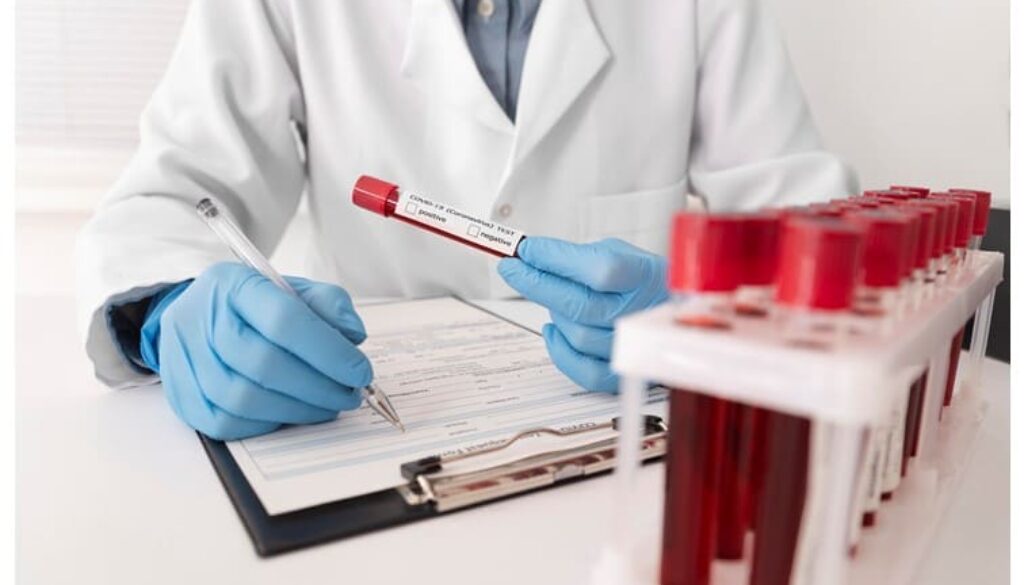Blood tests for heart disease – Do You Know them?
Blood tests for heart disease: In addition to cholesterol there are other substances in the blood that help tell you about your heart health. In addition, it is also important to note that a single blood test alone cannot determine the risk of heart disease.
As we all know that elevated levels of bad cholesterol provide a clue that there is an augmented risk of getting a heart attack. In addition, there are other substances whose levels in the blood can also help determine heart disease or the risk of developing heart disease or heart attack in the future.
Cholesterol Test
This is the most common test that helps in determining the risk of developing heart disease or heart attacks. In general individuals with high cholesterol levels, diabetes and high blood pressure are at increased risk of developing heart disease.
Cholesterol test involves the measurement of total cholesterol, low-density lipoprotein (LDL) cholesterol; high-density lipoprotein (HDL) cholesterol; non-HDL Cholesterol, and triglycerides.
What should be the ideal levels of cholesterol?
High levels of total cholesterol can increase the risk of heart disease. The levels should ideally be below 200 milligrams per deciliter (mg/dL) or 5.2 millimoles per liter (mmol/L).
LDL and HDL Cholesterol – Blood tests for heart disease
High LDL levels can form plaque in the blood vessels – which may break off or rupture to cause a major heart attack or blood vessel problems. Ideally, the levels of LDL should well be below 130 mg/dL. However, in individuals with diabetes and previous history of heart attack and heart disease or any other vascular condition or in those who have stents or who have had undergone bypass surgery the LDL levels should ideally be less than 100 mg/dL. Cardiologists recommend levels of LDL below 70 mg/dL in individuals who are at the highest risk of heart attack with a very strong family history of heart attacks.
HDL cholesterol (good cholesterol) – the levels of this type of cholesterol should always be high. Therefore, in men, they should be around or more than 40 mg/dL and in women, the levels of HDL should be more than 50 mg/dL
Triglycerides
This type of fat in the blood at high levels is not considered as healthy. The levels of triglycerides another type of fat in the blood increase when people take a fatty diet and high calories than what they usually burn. The risk of heart disease increases manifolds with increasing levels of triglycerides. Ideal levels of triglycerides in the blood should be less than 150 mg/dL.
Non-HDL cholesterol. Non-high density lipoprotein cholesterol (non-HDL-C) is the difference between total cholesterol and HDL cholesterol. Non-HDL-C includes cholesterol in lipoprotein particles that are involved in the hardening of the arteries. The non-HDL-C fraction may be a better marker of risk than total cholesterol or LDL cholesterol
Non-HDL Cholesterol
This cholesterol is the difference between total cholesterol and HDL cholesterol. This type is the prominent cholesterol in lipoprotein particles that are responsible for atherosclerosis. This type of cholesterol is the best marker of heart disease risk compared with LDL or total cholesterol.
High-Sensitivity C-Reactive Protein Test
The liver makes this protein in the body in response to infection or injury. CRP is responsible for inflammation in the body. Hs-CRP test determines the risk of heart disease. Cardiologists evaluate the risk of heart disease in an individual by combining the hs-CRP test with other blood tests’ results.
Lipoprotein a
Lipoprotein (a), or Lp(a), is a type of LDL cholesterol. High LP(a) levels may indicate an increased risk of heart disease.
Plasma Ceramides
Ceramides help in the growth, function, and death of cells and tissues. These are carried by lipoproteins in the blood and are associated with atherosclerosis. These are linked with plaque build-up and insulin resistance. High levels of these substances in the blood may indicate a higher risk of cardiovascular disease within the next one to five years.
Troponin T
Troponin T is a protein test to measure the levels of troponin T in the blood. In people with less severe symptoms or no symptoms at all – higher levels of troponin T have been linked with an increased risk of heart disease and heart attacks. This protein is basically found in heart muscles. Any damage caused to heart muscles can increase troponin levels in the blood.
Blood tests for heart disease – depending on the risk factors, causes, and symptoms, a cardiologist recommends a combination of blood tests or certain specific tests to determine the risk of developing heart disease.




